#chip delany
Text
An extraordinary read about an extraordinary talent. (And always somebody you can smile and say “Hey, Chip…!” to as you pass him in the convention hotel’s bar…)
176 notes
·
View notes
Text
Takayuki Tatsumi: The extrapolation of the American situation in your sense seems a
fiction technique closely related to the traditional way of writing SF.
Samuel R. Delany: You assume there is a traditional way of writing science fiction. . . . You may be confusing a way of reading with a way of writing. But I see what you mean.
Well, if you're a science fiction writer, those are the generic conventions you have to work with and within. You're stuck with them, for
better or worse. The thing to do is see what you can make them into.
What you want to do is take those conventions—and break their necks!
TT: What about Butcher in Babel-17? Although at first he looks like a
slave, later the linguistic explosion makes him free. Is the linguistic
system a kind of slavery for you?
SRD: Again I detect an embryo allegory between me and one of my
characters in mitosis within your question. Let me stall its formation just
a little. The Butcher was, for me, primarily an object of desire. He was
someone I wanted to possess; not someone I wanted to be—or, indeed,
thought I already was. I wanted to rub up against him—like a large,
dangerous teddy bear. Here and there I'd seen aspects of him in the
streets, or now and again glimpsed him in the pages of other books. So I
polished him up and put him in a novel, where he would be safe. Or
where I would be safe from him—at least for a while.
Now to your question.
Glibly speaking, all speaking subjects are trapped in Nietzsche's
"prison-house of language." But who are these glibly speaking speaking
subjects who so speak? (Isn't "glib" the perfect modifier with which to characterize that particular linguistic figuration for the materiality of
language?) What do they risk (what can they win? what can they lose?
and what must they remain blind to?) by reminding us of that slavery? (Perhaps I remain blind to one or another three volume explanation of
history I accidentally wrote in this decade or that, while I wasn't looking. . . .) A writer is usually someone who gets a masochistic enjoyment
out of being enslaved to that particular house. I used to say very
frequently—and have written occasionally—that you only gain some
control over language when you become clearly aware of all the things
language cannot do. I love language. I love the specificity of English. I
love to play with it. And I love the way it plays with me.
TT: So there exists a kind of "love-hate relationship" between you and
language?
SRD: With more emphasis on the fact of love. Oh, certainly the hateful
side is there. There's always the frustration that comes with the problems
I try to solve. But if you don't enjoy trying to solve the problems (that's
probably where the masochism lies), you wouldn't have become a writer.
TT: Can you be sadistic rather than masochist about language?
SRD: I don't think it's possible. It's all variations of masochism. With
both sex and language, I think the sadists who take themselves too seriously are fooling themselves just a little. Sadism is a matter of desiring
the desire of the masochist so strongly that, eventually, that desire becomes sexualized. Sadists almost always go through a masochistic period
first, even if it's in early childhood. But it's surprising—and reassuring,
at least in sex—how rarely you run into that sort of self-deceived sadist.
The vast majority of the ones I've known personally have a pretty clear
memory of the earlier stage and a pretty clear understanding of the
process of transformation. One of the great crimes of the Frankfurt
school, in The Authoritarian Personality, was the writers' uncritical association of real sadism—the social sexual practice—with social blindness,
personal cruelty, and political oppression. They thought that sadism—which is, of course, the material social strategies of real people split by a
particular formation of desire, some of which practices are responsible
and some of which are irresponsible, and, as with any other social group,
some of whom follow those practices and some of whom balk at them—was a safe metaphor, something so anomalous, so beyond the cultural
pale, that they could pretty well use it anyway they wanted. It was an
attempt to make their topic glitter.
But what they did was blind a generation of thinkers to what was
actually going on in a whole range of social and sexual life with a whole
range of men and women, children and adults, white and black, Jewish
and gentile, gay and straight, rulers and ruled, oppressed. They momentarily forgot that sadism is traditionally known as
"the perversion of philosophers"—philosophers as they were. And why.
from "science fiction and criticism:
the diacritics interview", collected in samuel r. delany: silent interviews
42 notes
·
View notes
Text



Completely normal santa smoke circle
1 note
·
View note
Text
my single favorite "trans science fiction" piece is Aye, And Gomorrah..., written in 1967 by noteworthily gay but not trans author Chip Delany. here it is; i come back to it every year or so, find it endlessly provocative and incisive, with much to say in fairly plain language that very few authors have managed since
670 notes
·
View notes
Text
'Delany describes with heartbreaking passion a cornerstone of his pedagogy: the importance of inspiring confidence in his students. I want them to know they matter, he tells an interviewer, through rising tears.'
Happy 82nd, Chip Delany!
86 notes
·
View notes
Text
"Ancient World Fantasy" Reading List
(A little context to start. If you just want book recs, scroll on down to the first image.)
As I’ve been getting into RuneQuest (Wikipedia link), one striking component of the culture and community surrounding the game is that they’re very into the lore of its fictional world, Glorantha. I’m saying this as a comparison to a game like D&D, where the game is spread across tons of settings with no real sense of obligation to keep things in line with earlier editions.
Glorantha’s canon and worldbuilding has been going on since it was published in 1978 without, as far as I can tell, any big reboots. Which means that, unlike D&D, where people are bringing in all kinds of influences and doing direct adaptions of Jane Austen books and whatever, the RuneQuest game remains pretty tightly tied to the original setting. (There have been some exceptions. But not many!)
But since I run games for people who have ADHD or aren’t interested in studying up, I’ve been looking at all kinds of inspiration to drop into the game. Here are 20 novels that are roughly “ancient world” or “Bronze Age” like RuneQuest and deal with people interacting with strange gods, tight communities, and a world without fast overland travel or transferal of information.
I’m presenting them alphabetically by author’s last name.
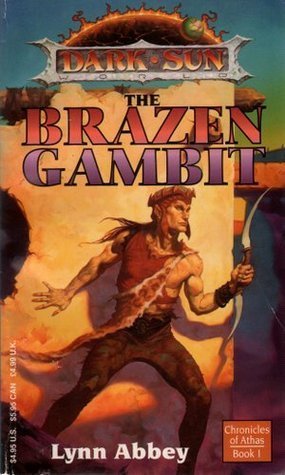
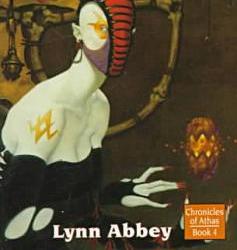
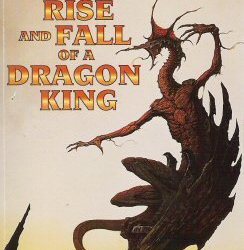
The Brazen Gambit, Cinnabar Shadows, The Rise and Fall of a Dragon King by Lynn Abbey
I'm sorry for starting this post off with licensed RPG novels, but these are good! And I don't mean "good for licensed RPG novels." I've read tons of them, and most are so bad! But these are actually fun. Good character development in a sword-and-sorcery world. It's also an ecological apocalypse world, with godlike beings oppressing common folks, leading to a lack of technological advancement and knowledge of the past.
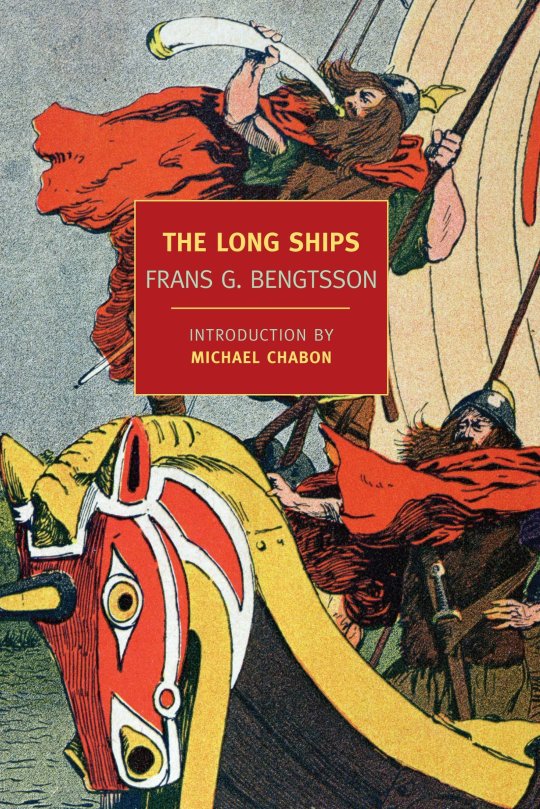
The Long Ships by Frans G. Bentsson
Written in the 1940s as a series of novellas, these stories take you on a tour of the Viking-era world, from Europe to the Middle East and beyond. Like a bunch of books on this list, this places them post-Bronze Age, so they're not officially "ancient world." But it gives a big spread of cultures, from the more clan-based Vikings to the bustling metropolises of Turkey. And it doesn't place any of them on any kind of linear advancement scale or whatever other gross way people "rate" cultures.
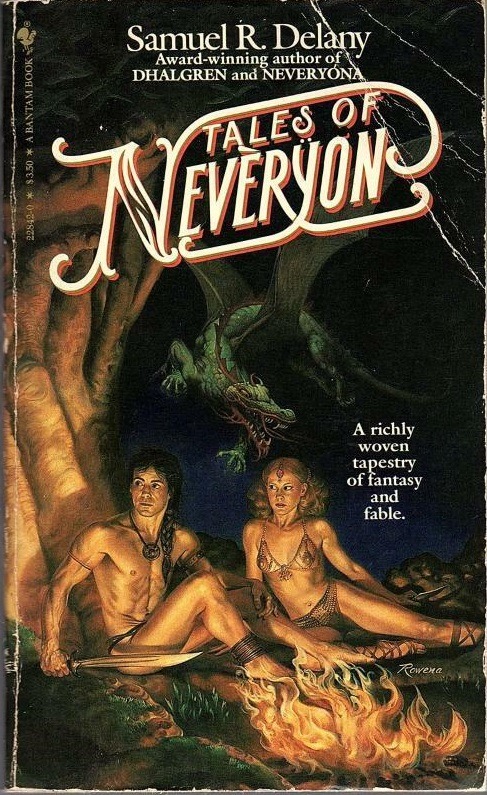
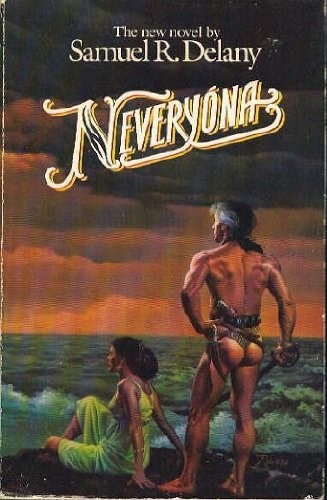
Tales of Nevèrÿon and Neveryóna by Samuel R. Delany
The master of weird sci-fi and gay historical novels, Chip Delany also wrote a fantasy epic. And it rules! Set on pre-historical(ish) Earth, these books describe the stories that maybe inform the myths we tell today? Dragons and slave revolts! A sort of "What if Game of Thrones was good?" series. Lots of good stuff about how people learn and how understanding expands.
I'm not listing the third book only because it's also a historical look at New York during the AIDS epidemic. It's an amazing book! But it strays from the "ancient world" aesthetic.
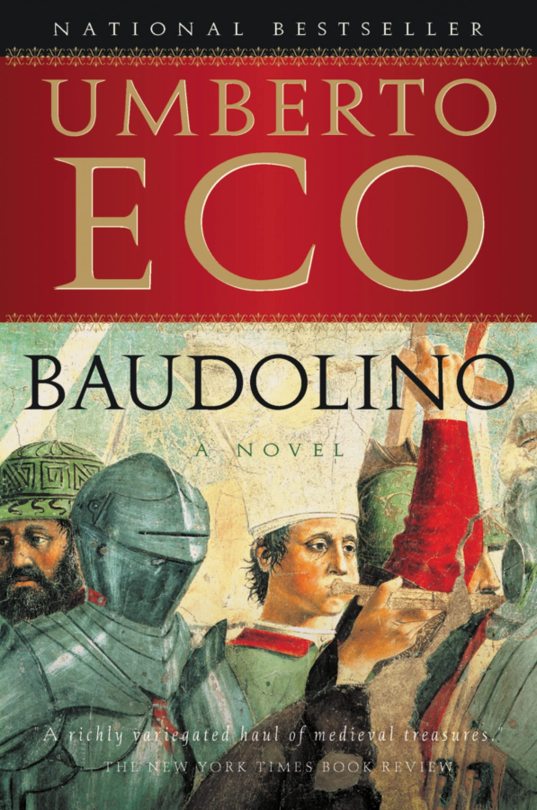
Baudolino by Umberto Eco
Another novel expressly set after the Bronze Age (this one starts in the 12th century). BUT it's about Medieval people's interaction with the knowledge they inherited from the past, specifically the myth of Prester John and the works of Herodotus.
I think I keep putting books like this on the list because roleplaying in a fantastical ancient world is not too far off from how Medieval people might have worshipped and referenced works from ancient Rome and non-European places.
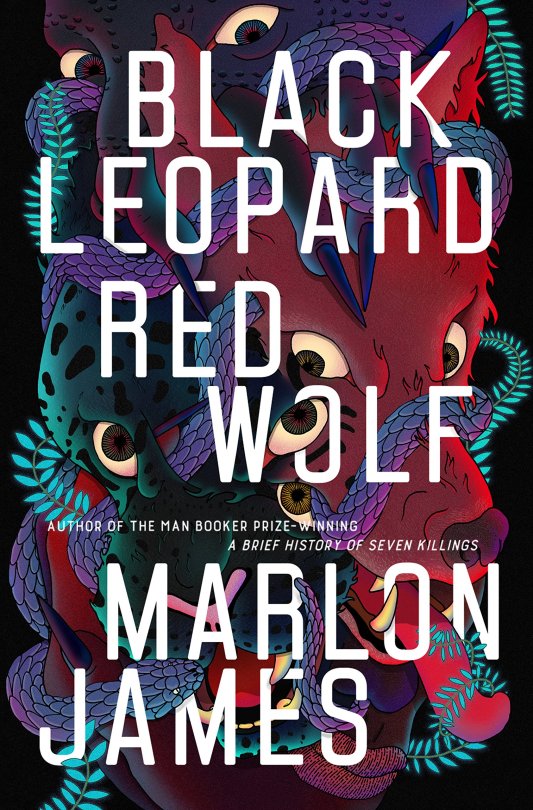
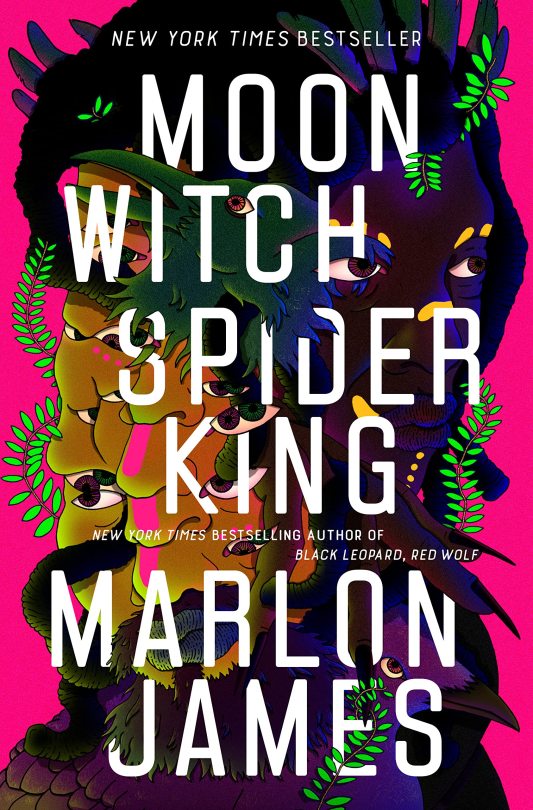
Black Leopard, Red Wolf and Moon Witch, Spider King by Marlon James
One of our best living writers! These are fantasy novels expressly set in a fantastical version of ancient/Medieval Africa. The books explore the same events from multiple points of view and are full of cool magic, awesome spirit combat, and a vast number of places and cultures that actively deconstructs most games's portrayal of fantasy Africa as a homogeneous place.
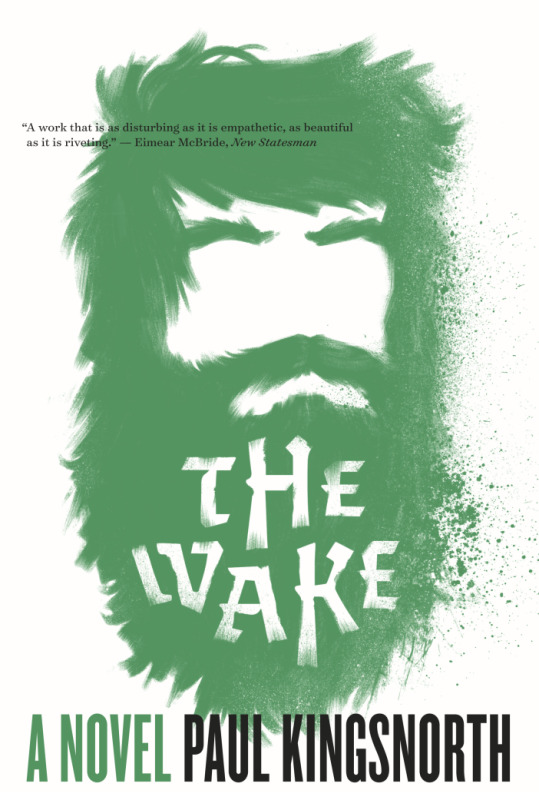
The Wake by Paul Kingsnorth
I think Kingsnorth has been outted as a sort of eco-fascist? I totally believe it, so feel free to skip this one. It's a historical novel set in England in 1066, as the Normans invade from France. It's written in a faux Middle English language and focuses on the lower classes and how they try to resist the invasion. A good reminder that "Medieval culture" (and especially the Renaissance as a time that "culture advanced") is often based on certain classes of society, such as rich people and/or men.
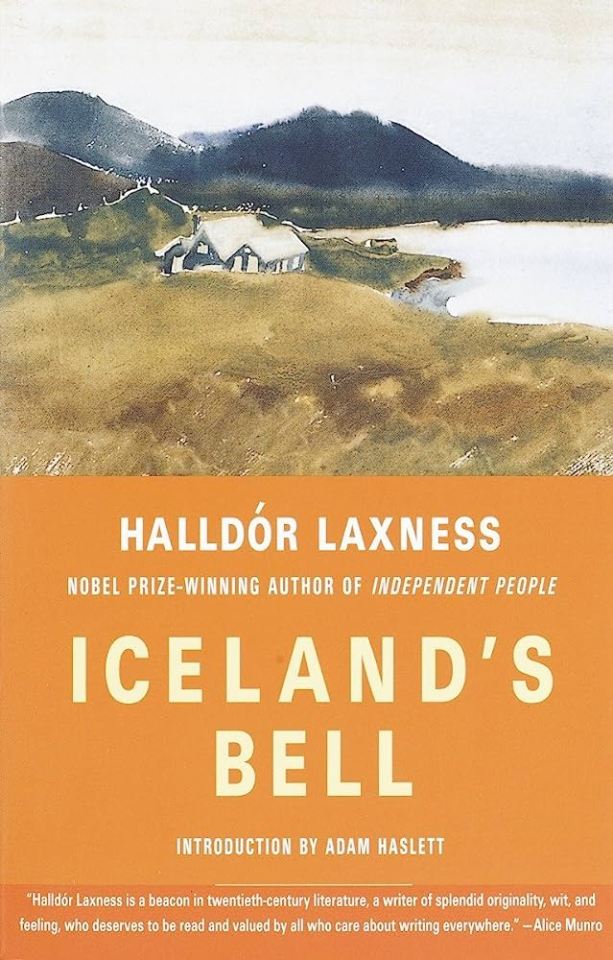
Iceland's Bell by Halldór Laxness
Speaking of how class intersects with technological advancement, this book is set in the 18th century, but it focuses on Iceland at a time when it was ruled by Denmark, and the lower classes there were under an enforced poverty. It's a book about how a rich Icelander was trying to recover the stories of his people in order to create a sense of national identity and resistance. But it's also a story about how a destitute man acts like a total weirdo when he's not allowed to fish in his own waters and is cut off from understanding his place in history.
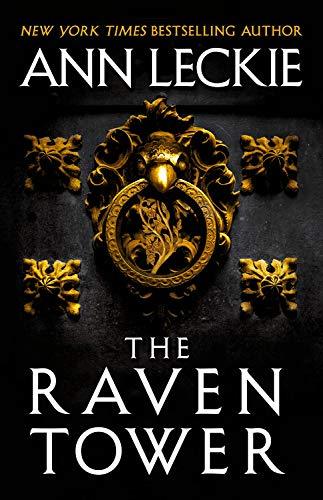
The Raven Tower by Anne Leckie
A big part of RuneQuest is people interacting with and enacting their gods. That's what this book is about! And it's about the strange vertigo that comes to people when they try to interact with the impossible timelines that gods exist on. Very good stuff.
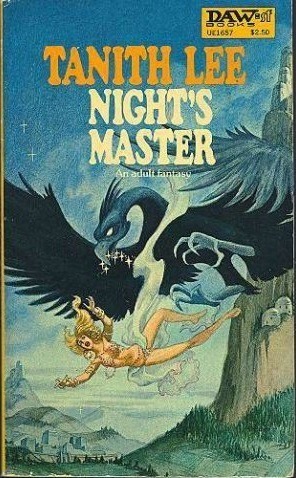
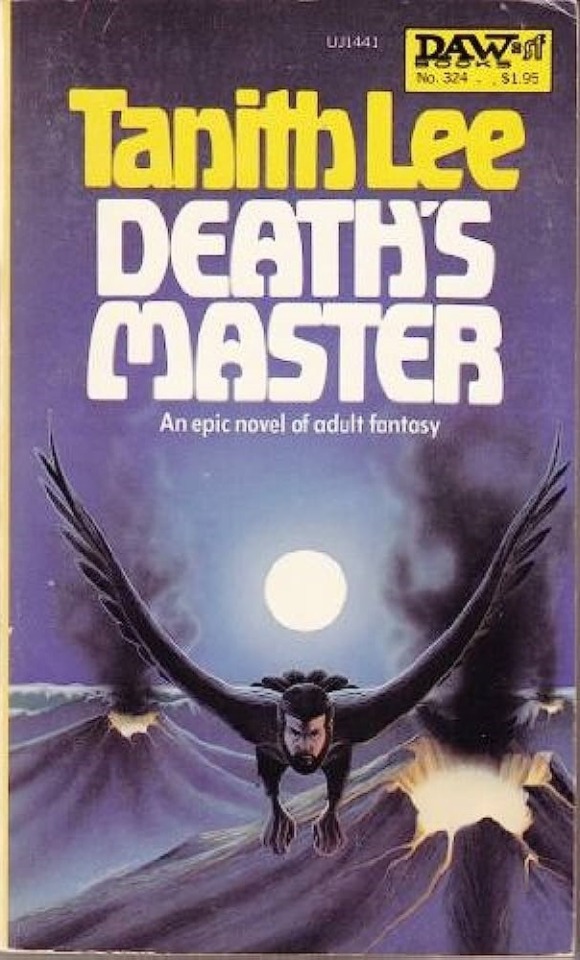
Night's Master and Death's Master by Tanith Lee
Ostensibly set on Earth back when it was flat and demons roamed the world, which is basically RuneQuest. Sort of like a series of hornier, gay bibles? With lots of gender fuckery, fun sex, and cool monsters.
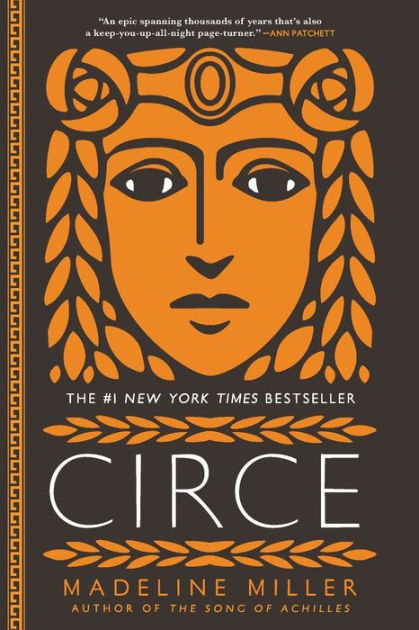
Circe by Madeline Miller
The story of the witch from The Odyssey, told from her point of view. Beautiful prose, tragic and beautiful characters, and a great share of mythical strangeness. Perfect if you want to learn how to run NPCs that are adversaries without being shallowly evil.
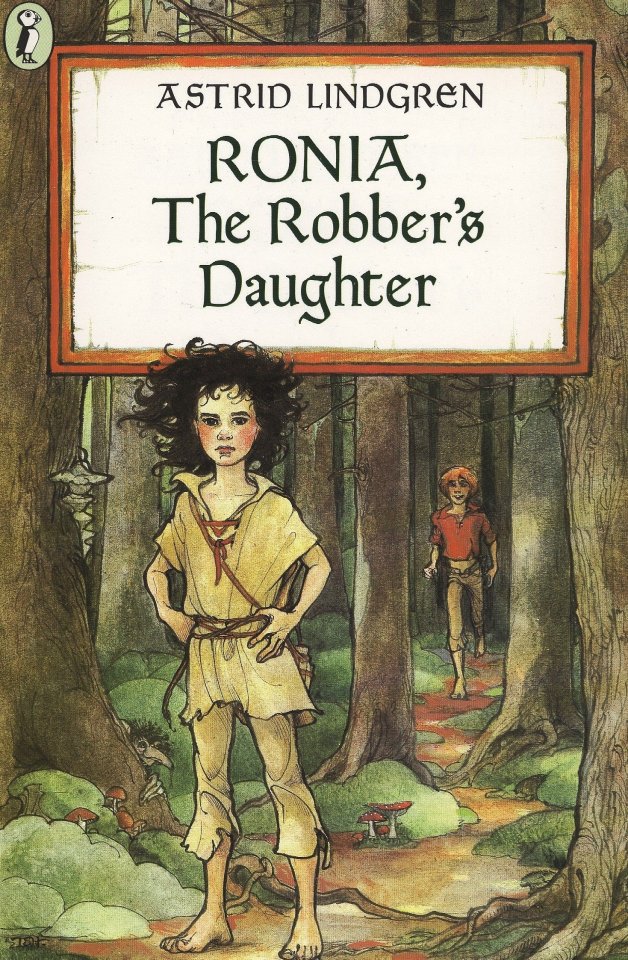
Ronia, the Robber's Daughter by Astrid Lindgren
Semi-Medieval again, but low class and vague enough that it could exist throughout ancient history. The daughter of a robber grows up in a tower full of robbers and generally has a wonderful time. Lots of weird monsters live in the woods, and there's a great starcrossed romance with someone from a rival robber gang. Perfect inspiration if you're running some cattle-raiding runs in RuneQuest; this is how to make robbers fun and sympathetic.
Read the book, watch the 1984 Swedish movie (which includes a great comedic scene of full-frontal dudity), and then watch the Studio Ghibli series.

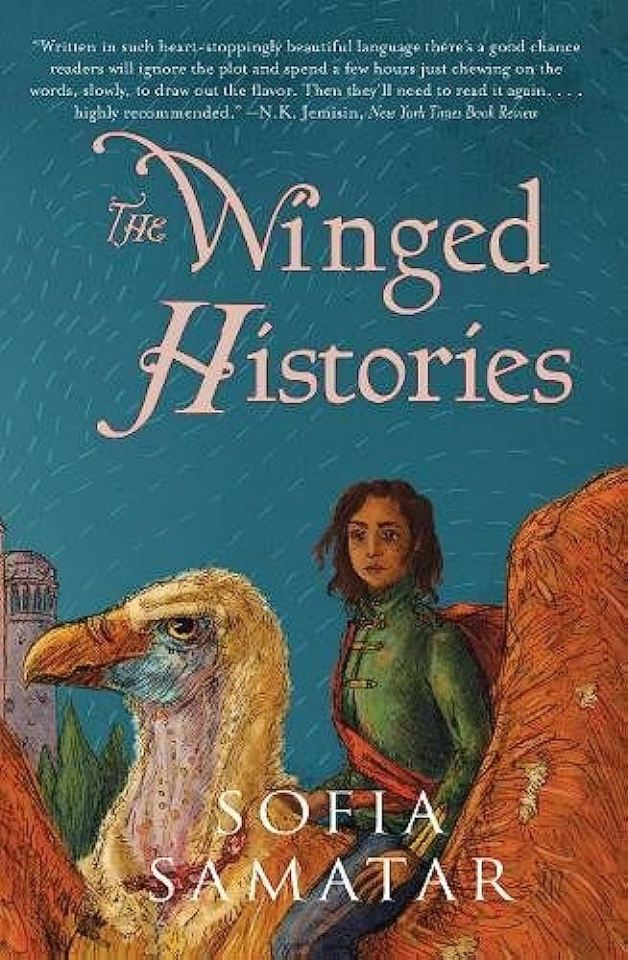
A Stranger in Olondria and The Winged Histories by Sofia Samatar
Set in a world of pepper farmers and religious fanatics who worship a mysterious inscribed stone, these books do a great job of showing how people might interact with religion, rival cults, and mystery rites. It also portrays literacy and learning to read in places where it's gated behind social gatekeeping. And once again, the prose is beautiful.
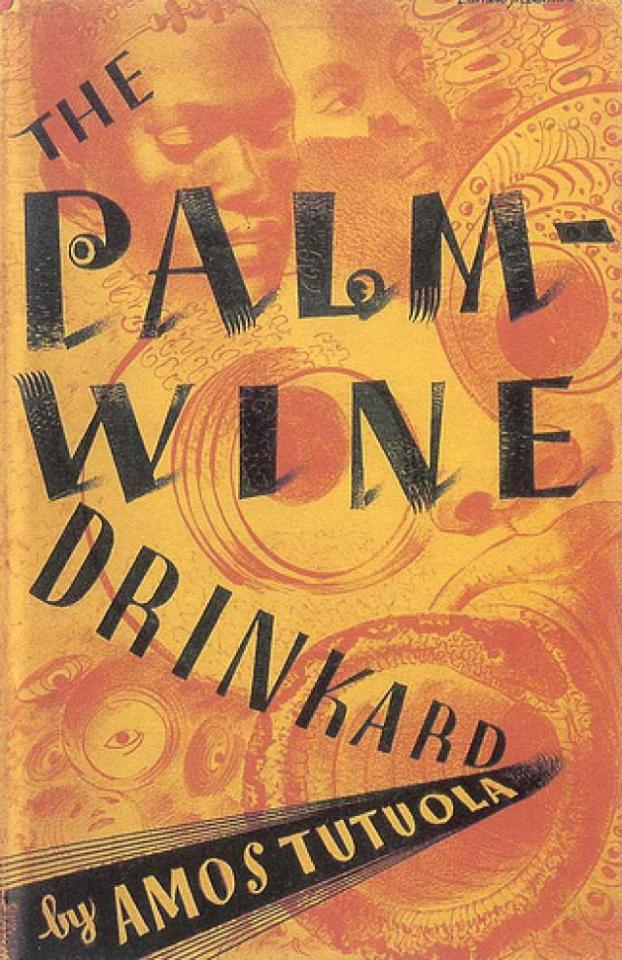
The Palm-Wine Drinkard by Amos Tutuola
The first African novel published in English outside of Africa, The Palm-Wine Drinkard is a funny, hallucinogenic story about getting drunk, stumbling through weird landscapes, and encountering fantastical spirits and people.
Tutuola also wrote My Life in the Bush of Ghosts, the inspiration for the famous(?) David Byrne/Brian Eno album. I haven't read it yet, but I'm keeping an eye out!
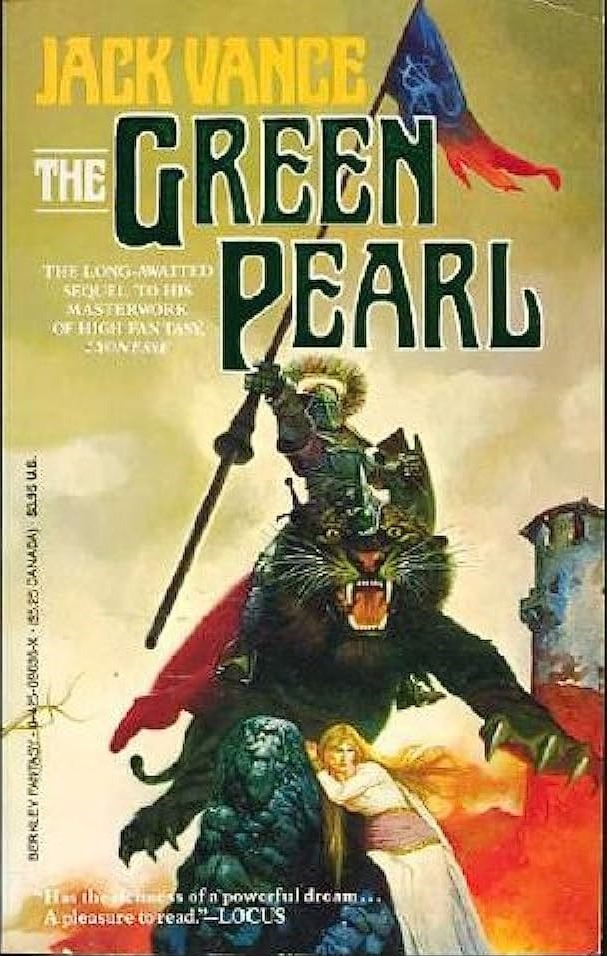
The Green Pearl by Jack Vance
This is a sequel to Lyonesse, which I haven't read because I love staring in the middle of things. Set around a mythical British Isles when Atlantis was still above the sea and part of the group of islands. Some great wizard shit, warring clans, romance, and a wizard whose name is fucking Shimrod (in case you need more convincing).
Those are my 20 novel recommendations! I'm gonna come back to add some nonfiction, comics, and myth resources for running games in fantastical ancient worlds. You can read SpeedRune, my ancient fantasy game, here.
225 notes
·
View notes
Note
Book recs!! Hello! A lot of books I like have already been sent in. Here are a few that might not have been!
Shriek: an Afterword by Jeff VanderMeer (you don't need to read the preceeding novel this book absolutely can stand alone) (everybody seems to love his more recent stuff but this is the only novel of his I've really fallen in love without outside his Southern Reach trilogy)
Triton by Samuel R Delaney (<- if you read one book off this list let it be this one, it's such a hidden gem)
The Fifth Season by NK Jemisin (<- this is my all time favorite book series I think)
The City & The City by China Mieville (or really anything by him that you haven't read yet. He's one of my favorite authors and you seem familiar w him already!
Slaughterhouse Five by Kurt Vonnegut (<- you probably have already read that one but it feels like an obligatory rec)
i'm assuming the other anon in my inbox is from you and will answer it next. i cosign all of these and have read the last 3; i have read City of Saints and Madmen (first in the trilogy Shriek is in.
I agree that VanderMeer's early stuff is waaaay better, and you should check out Veniss Underground. it's basically what would happen if he and Miéville had insane gay sex.
I love Delany but haven't read Triton specifically. but all of chip's work that i haven't yet read is on my tbr.
tl;dr thank you, and congrats on having correct™ book opinions!
8 notes
·
View notes
Text
Last September, while working at his desk in Philadelphia, Samuel R. Delany experienced a mysterious episode that he calls “the big drop.” His vision faded for about three minutes, and he felt his body plunge, as if the floor had fallen away. When he came to, everything looked different, though he couldn’t say exactly how. Delany, who is eighty-one, began to suspect that he’d suffered a mini-stroke. His daughter, Iva, an emergency-room physician, persuaded him to go to the hospital, but the MRI scans were inconclusive. The only evidence of a neurological event was a test result indicating that he had lost fifteen per cent of his capacity to form new memories—and a realization, in the following weeks, that he was unable to finish his novel in progress, “This Short Day of Frost and Sun.” After publishing more than forty books in half a century, the interruption was, he told me, both “a loss and a relief.”
For years, Delany has begun most days at four o’clock in the morning with a ritual. First, he spells out the name Dennis, for Dennis Rickett, his life partner. Next, he recites an atheist’s prayer, hailing faraway celestial bodies with a litany inspired by the seventeenth-century philosopher Baruch Spinoza: “Natura Naturans, system of systems, system of fields, Kuiper belt, scattered disk, Oort cloud, thank you for dropping me here.” Finally, he prepares oatmeal, which he faithfully photographs for the friends and fans who follow him on Facebook. Every so often, when the milk foams, he sees Laniakea—the galactic supercluster that’s home to Earth.
In the stellar neighborhood of American letters, there have been few minds as generous, transgressive, and polymathically brilliant as Samuel Delany’s. Many know him as the country’s first prominent Black author of science fiction, who transformed the field with richly textured, cerebral novels like “Babel-17” (1966) and “Dhalgren” (1975). Others know the revolutionary chronicler of gay life, whose autobiography, “The Motion of Light in Water” (1988), stands as an essential document of pre-Stonewall New York. Still others know the professor, the pornographer, or the prolific essayist whose purview extends from cyborg feminism to Biblical philology.
There are so many Delanys that it’s difficult to take the full measure of his influence. Reading him was formative for Junot Díaz and William Gibson; Octavia Butler was, briefly, his student in a writing workshop. Jeremy O. Harris included Delany as a character in his play “Black Exhibition,” while Neil Gaiman, who is adapting Delany’s classic space adventure “Nova” (1968) as a series for Amazon, credits him with building a critical foundation not only for science fiction but also for comics and other “paraliterary” genres.
Friends call him Chip, a nickname he gave himself at summer camp, in the eleventh year of a life that has defied convention and prejudice. He is a sci-fi child prodigy who never flamed out; a genre best-seller widely recognized as a great literary stylist; a dysgraphic college dropout who once headed the Department of Comparative Literature at the University of Massachusetts, Amherst; and an outspokenly promiscuous gay man who survived the aids crisis and has found love, three times, in committed, non-monogamous relationships. A story like Delany’s isn’t supposed to be possible in our society—and that, nearly as much as the gift of his writing, is his glory.
It took several months to persuade him to meet. Delany has polemicized against the face-to-face interview, reasoning that writers, who constitute themselves on the page, ought to be questioned there, too. He warned in an e-mail that a visit would be a waste of time, offering instead a tour of his “three-room hovel” via Zoom: “No secret pile will be left unexplored.” Yet a central theme in his work is “contact,” a word he uses to convey all the potential in chance encounters between human beings. “I propose that in a democratic city it is imperative that we speak to strangers, live next to them, and learn how to relate to them on many levels, from the political to the sexual,” he wrote in “Times Square Red, Times Square Blue” (1999), a landmark critique of gentrification which centered on his years of cruising in the adult theatres of midtown Manhattan.
His novels, too, turn on the serendipity of urban life, adopting the “marxian” credo that fiction is most vital when classes mix. Gorgik, a revolutionary leader in Delany’s four-volume “Return to Nevèrÿon” series, rises from slavery to the royal court in an ancient port city called Kolhari, where he learns that seemingly centralized “power—the great power that shattered lives and twisted the course of the nation—was like a fog over a meadow at evening. From any distance, it seemed to have a shape, a substance, a color, an edge. Yet, as you approached it, it seemed to recede before you.”
In January, Delany finally allowed me to visit him at the apartment complex that he now rarely leaves. A hulking beige structure near the Philadelphia Museum of Art, it looms like a fortress over the row houses of the Fairmount. I crossed a lobby the length of a ballroom and rode the elevator to the fourth floor. As I walked down the hallway, I noticed a small man behind a luggage trolley taking my picture. It was Delany, smiling in welcome with his lively brown eyes and strikingly misaligned front teeth.
[A Delightful portrait of my favorite Science Fiction writer]
24 notes
·
View notes
Text
@homeybee I was also thinking I having seen a tag game in a while!! how fun
Last song I listened to: Funnel of Love by SQURL & Madeline Follin bc its on a playlist I made for a dark fantasy romance original piece I'm writing rn
Three ships: this is so cursed but i have to go with my 3 OTPs through the ages which are evidenced in my ao3 history
Currently reading: I'm like 150 pages into Delany's Dhalgren which is gunning for my top read of the year already, but I'm moving pretty slowly through since it's dense. I've been reading other things alongside it since I can only read it when my brain is pretty on, so I was thinking of starting Sofia Samatar's The White Mosque but was also considering Don Delillo's End Zone???? Which are very different vibes lol
Most recent movie I watched: Just got back from my second screening of Hidden Blade and it banged
Craving: i am out of chips and that, to me is a problem
tagging: @existentially-yibo @wei--wuxian @travelingneuritis @youhideastar @lansplaining @vvienne @a-song-without-words @lilnasxvevo
#if we have talked on here i'd love to see ur answers to this too :)#but i felt silly already tagging so many people!!#also no pressure obviously if this doesnt sound fun
9 notes
·
View notes
Photo

Go straight to Brothers K., then Kafka and Frankenstein, then Camus (though maybe take The Rebel over the novels). The Orwells and Huxley if you’ve never read them—but Orwell, like Camus, belongs to the ranks of the essayists not the novelists. I never got the big deal about The Little Prince—zut, I even read it en français. I think I read Siddhartha extracurricularly in high school because, frankly, a girl handed it to me, but it didn’t make any impression. Must I study Marcus Aurelius? Dr. Sugrue says yes: “every man dies, but not every man dies whining.” (The emperor shows up as a minor villain in my doctoral dissertation—in Pater’s Marius the Epicurean, he plays a role corresponding to Mulligan’s in Ulysses and Bradshaw’s in Mrs. Dalloway—but I only browsed the Meditations, since Pater’s real target was Matthew Arnold. Not to strike a neoconservative note—a Trilling note, you might say—but I would be friendlier to Arnold 10 years later.) Of the Beats, I prefer Burroughs to Kerouac. For Hemingway, skip The Old Man and read the early stories. I won’t be reading any trendy pop nonfiction, and, in 10 or 100 years, neither will anybody else. Dune is fun, I don’t deny it, but the SF is optional and to taste; I prefer Chip Delany. Read Shakespeare. Read Romantic poetry. Read Wuthering Heights in winter, To the Lighthouse in spring, Pride and Prejudice in summer, and Sula in fall.
6 notes
·
View notes
Text
some fun experiences i’ve had with the work of samuel ‘chip’ delany:
i listened to Nova on audiobook while i was working in a lab after graduating from undergrad. i had taken a course on the history of literary criticism during the last semester of my degree. it had been a really hard class, and, having gotten an A+, I’d felt like I had unlocked something. i can’t really remember what but basically i had solved fascism, and with it, politics. i listened to Nova and found aspects of it, fascistic! horrifying to me. i tried not to think too hard about it.
one morning i was chatting with my roommate about something, and i suddenly had the thought “this is just like ‘Aye, and Gomorrah.’” i handed him my copy of driftglass n told him to read it while i showered. when i came out of the shower we had a long conversation about it. it was really good. “was i just waiting for the object of my desire to be created?” n so on.
i was driving to nashville with my gf for my vaginaplasty. i asked if i could put on a podcast, and choose Levar Burton Reads, specifically his live episode with Chip. he read ‘Driftglass,’ and I was really struck by all of it. I, like the characters, were on the eve of becoming fish.
I’m working on dhalgren now. its good.
5 notes
·
View notes
Note
Book ask: 11
Ty for asking!!! Most of the books I read aren't new releases, so for the sake of an operational definition I'm gonna answer with the oldest book I gave five stars: Babel-17, by Samuel R. "Chip" Delany! It was the first book I read by him and I definitely want to read more, I was very impressed
#its strong Sapir- Whorf but i think that serves a much stronger metaphorical purpose in the book tjan just “isnt this theory wild”#also fun fact: Samuel Delany has the most misspelled name in publishing! people love to sneak an extra e in thete
1 note
·
View note
Text
so one of my long term reading goals is to read more classic 20th century scifi, because while i love scifi i haven't really dived into the classics
this year i've picked up ursula k. le guin (the left hand of darkness, absolutely fascinating from a sociological and gender pov even if the writing itself felt a little dull to me),
octavia e. butler (kindred, LOVED this book, it's incredible to me that it's 40+ years old, and i definitely need to pick up more of her straight-up sci-fi works),
ray bradbury (fahrenheit 451; i didn't enjoy it as much as the martian chronicles which i read years ago and really liked, but i'm glad i read it),
and right now i'm finally reading some isaac asimov (started with i, robot and i think that was a good choice, the short stories are very digestible and the ideas of robotics are what i'm most interested in re: his writing)
i still have a few more authors i intend to get to, samuel r. delany for one and a few more, but like i said this is more of a long term goal that i'll chip away at for a while.
and i think it's a good way to appreciate current scifi and where it draws from. i can definitely see the thread that connects arkady martine's teixcalaan duology (one i loved this year) to the left hand of darkness as sociological scifi about diplomacy, or kazuo ishiguro's klara and the sun to asimov's short story robbie being about robots designed to be companions for children. it's fascinating to see the genre's development.
#silv.txt#this one isn't As old but i'm also planning on reading hyperion soon#my bf loves it and i've been thinking about it since i learned it was an influence on simon jimenez's the vanished birds which was AMAZING
1 note
·
View note
Text
youtube
A fresh, new, summer conversation with Chip Delany.
at the Free Library of Philadelphia, June 2024.
video is just shy of an hour long
28 notes
·
View notes
Text
Excellent reads for the found family trope! 🥺❤
Chip Delany's Hogg
1 note
·
View note
Text
I wish to Apologize
On a panel at the 2022 Nebulas, I had the chance to celebrate authors who wrote positive gay characters long before me.
Chip Delany is obviously a major player in that game. Because there are two Samuel Delanys--there's one from Texas--I wanted to make sure people got hold of the right one. So, in my excitement, I got caught in a mental/verbal stumble between "black" and "person of color," and as best I can remember, what came stuttering out was something like "spcolored."
I'm not an amazing speaker. I stammer, I freeze up, & I get things wrong. I am sorry that I bungled a modern term while bringing attention to an amazing black creator.
Too often, I am called a pioneer, but I'm not--I'm just who some readers heard of first. I wanted to make sure Delany got all the proper credit that he is more than due, and maybe new readers would be inspired to read his work.
A note from Chip Delany:

176 notes
·
View notes